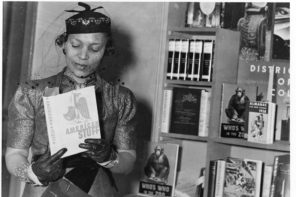Mere hours after Dylann Roof’s murderous assault on Charleston’s Emanuel AME Church, Fox News pundits reframed the story as a secularist attack on Christianity. They were met with a tsunami of outrage from critics, who — correctly — accused Fox of downplaying the racist nature of the killings. Facts soon emerged that confirmed Roof’s racist motivation beyond all doubt, but curiously, the anti-religious, and anti-Christian, aspect of the crime has been lost in the swirling media storm—why did he go to church to commit murder?
The tradition of sanctuary — that houses of worship are weapons-free zones, where those who shelter in them are safe from assault — is ancient. Yet assailants have flouted the sanctuary tradition, causing ecclesiastical flagstones to run red with blood.
We are not here to triumph by fighting, by stratagem, or by resistance,
Not to fight with beasts as men. We have fought the beast
And have conquered. We have only to conquer
Now, by suffering. This is the easier victory.
— T.S. Eliot, Murder in the Cathedral
The 1963 bombing of the 16th Street Baptist Church in Birmingham, Alabama was another notorious transgression of sanctuary. Klan members planted at least 15 sticks of dynamite under the church’s front porch. Four young girls died and 22 other congregants were injured. Only a few of the perpetrators were ever prosecuted.
In 1980, Archbishop Óscar Romero of El Salvador was celebrating mass in a small chapel attached to a hospital. He had just finished preaching a sermon calling on Salvadoran soldiers to resist their superiors’ orders to engage in state-sponsored terrorism. Moments later, Romero took his place at the center of the altar and was shot to death by members of a paramilitary death squad.
Such atrocities shake believers’ faith in the security of their religion institutions. A newspaper reporter recorded one distraught member of Mother Emanuel church asking: “If we’re not safe in the church, God, you tell us where we are safe.”
When Dylann Roof violated the sanctuary of that Charleston church, assassinating its pastor like the murderers of Becket and Romero before him, there is no doubt he was attacking Christianity, as well as venting racist hatred.
Do not neglect to show hospitality to strangers, for by doing that
some have entertained angels without knowing it.
— Hebrews 13:2
Consider the idea of hospitality as well: forged in desert lands where, for a lost traveler, a nomad’s tent could mark the difference between life and death, this was a sacred trust. For believers who stand in the hospitality tradition, failing to welcome a stranger is a serious transgression. Far more heinous yet is for guests, the beneficiaries of such a welcome, to turn on their hosts, doing them harm.
In 1692 members of Scotland’s Clan MacDonald were murdered by soldiers in a remote Highlands village. Alastair Maclain, a clan chieftain, had failed to swear a loyalty oath to the Crown in a timely fashion. The soldiers’ orders were “to fall upon the rebels, the McDonalds of Glencoe, and put all to the sword under seventy. You are to have a special care that the old fox and his sons do upon no account escape your hands…”
True to the laws of hospitality, the unsuspecting MacDonalds welcomed the soldiers into their homes, giving them food and a place to sleep. Late at night, on a signal from their commander, they rose up and killed 38 men — many of them still in their beds — then burned the village and turned their dependents out into the snow. Forty women and children died of exposure.
Just as the Royalist soldiers first broke bread with their hosts before murdering them in their sleep, so Dylann Roof received a cordial welcomed into Emanuel Church’s Bible study. He sat placidly with his victims for an hour before pulling out his gun and killing those who had welcomed him.
Who is to know what the slain church members thought, at first, of this taciturn young white man who had knocked on the church door, asking to see the pastor? He sat at table with them, perhaps even engaged in discussion with them, as Pastor Pinckney fed his flock with the Word. True to the laws of hospitality, the Christians of Mother Emanuel Church welcomed their guest. Then he abruptly turned on them.
The author of Hebrews exhorted Pinckney’s flock to be profligate with their hospitality, lest they find themselves entertaining angels unawares. In Dylann Roof, those churchgoers met a devil.
Roof could just as well have visited his racist wrath on people gathered in a bar or bowling alley. But he did not. The fact that he chose a church is an indicator not of Fox’s favorite red herring — the imaginary War on Christianity — but rather of the killer’s awareness that the one place in a Southern city where African-Americans feel safest is their historically black church.
Sanctuary and hospitality are virtues honored by religions the world over. Churches are meant to be safe places. Those who extend hospitality to strangers are not supposed to worry that their guests may turn around and assault them.
The communal wounds that Roof has inflicted, alongside his already unfathomable crime, are deepened by his contempt for powerfully-held traditions of sanctuary and hospitality.





